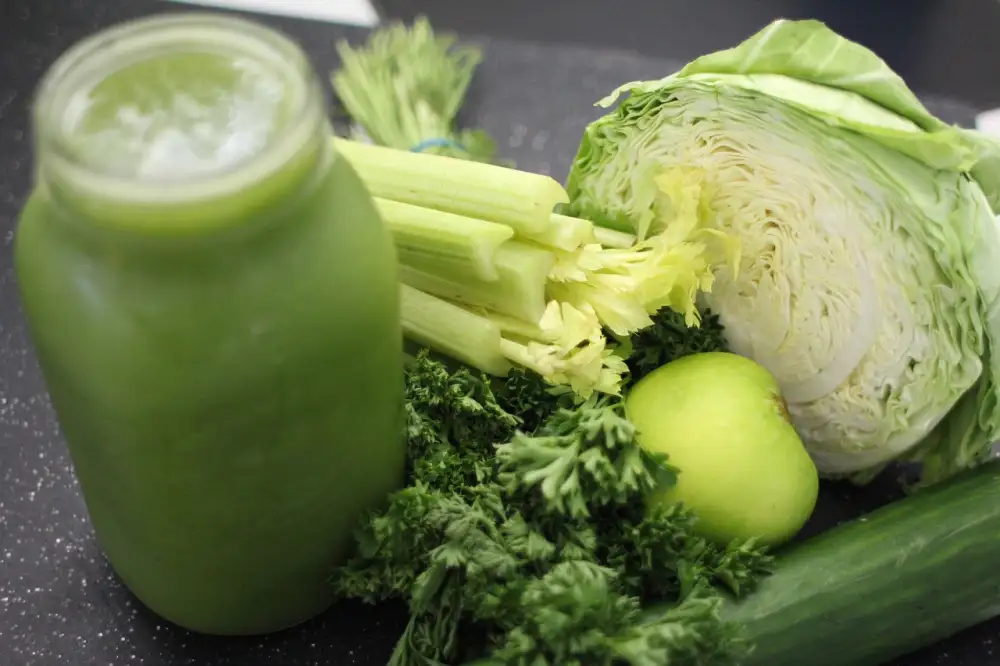Trim Down and Savor: Discover the Best Weight Loss Meals for a Healthier You

- Understanding the Importance of a Healthy Diet for Weight Loss
- Key Components of Effective Weight Loss Meals
- Incorporating Lean Proteins in Your Weight Loss Meals
- The Role of Fiber in Promoting Weight Loss
- Choosing Nutrient-Dense Foods for Sustained Energy and Weight Management
- Incorporating Whole Grains for a Balanced and Filling Meal
- The Power of Portion Control in Weight Loss Meals
- Incorporating Fruits and Vegetables for Essential Nutrients and Weight Management
- Healthy Cooking Methods for Weight Loss Meals
- Meal Planning and Prepping Tips for Successful Weight Loss
When it comes to achieving a healthier lifestyle, weight loss meals play a crucial role. These specially designed meals are carefully crafted to provide the necessary nutrients while helping you shed those extra pounds. By incorporating the right ingredients and adopting healthy cooking methods, weight loss meals can be both delicious and satisfying. In this article, we will explore the key components of effective weight loss meals and provide tips on how to incorporate them into your daily routine. So get ready to trim down and savor the best weight loss meals for a healthier you!
Understanding the Importance of a Healthy Diet for Weight Loss
Understanding the importance of a healthy diet for weight loss is crucial in achieving your desired goals. While exercise plays a role, the majority of weight loss success comes from what you eat. A healthy diet provides your body with essential nutrients while reducing calorie intake. It helps to create a calorie deficit, which leads to weight loss. By focusing on nourishing foods and making mindful choices, you can fuel your body properly and achieve long-term weight loss results.
Key Components of Effective Weight Loss Meals
When it comes to crafting effective weight loss meals, there are a few key components that should be included. Firstly, it is important to focus on nutrient-dense foods that provide essential vitamins and minerals without excessive calories. These include lean proteins, fiber-rich foods, whole grains, and plenty of fruits and vegetables.
In addition to nutrient density, portion control plays a crucial role in weight loss meals. By controlling the amount of food consumed, you can ensure that you are not overeating and consuming more calories than your body needs. This can be achieved by using smaller plates or bowls and paying attention to serving sizes.
Another important component is incorporating lean proteins into your meals. Proteins help to promote satiety and keep you feeling full for longer periods of time. Opt for sources such as chicken breast, turkey, fish, tofu, or beans.
Fiber is also essential in weight loss meals as it aids in digestion and helps to keep you feeling satisfied. Include high-fiber foods like whole grains, legumes, fruits, and vegetables in your meals.
Lastly, it is important to choose nutrient-dense foods that provide sustained energy throughout the day. Avoid processed foods that are high in added sugars and unhealthy fats. Instead, opt for whole foods that are rich in vitamins, minerals, and antioxidants.
By incorporating these key components into your weight loss meals, you can create a balanced and satisfying eating plan that supports your goals for a healthier lifestyle.
Incorporating Lean Proteins in Your Weight Loss Meals
Incorporating lean proteins into your weight loss meals is essential for several reasons. Firstly, protein helps to keep you feeling full and satisfied, reducing the temptation to overeat. Secondly, it plays a crucial role in building and repairing muscles, which can help boost your metabolism. Lastly, protein has a higher thermic effect compared to carbohydrates or fats, meaning that your body burns more calories digesting it. Opt for sources such as skinless chicken breast, fish, tofu, Greek yogurt, and legumes to add lean proteins to your meals.
The Role of Fiber in Promoting Weight Loss
Fiber plays a crucial role in promoting weight loss. It is a type of carbohydrate that cannot be digested by the body, which means it adds bulk to your meals without adding extra calories. This helps you feel fuller for longer, reducing the chances of overeating. Fiber also slows down digestion and prevents blood sugar spikes, keeping your energy levels stable throughout the day. Include high-fiber foods like fruits, vegetables, whole grains, and legumes in your weight loss meals to aid in digestion and support healthy weight management.
Choosing Nutrient-Dense Foods for Sustained Energy and Weight Management
When it comes to weight loss meals, it's important to choose foods that are nutrient-dense. These are foods that provide a high amount of essential nutrients while being relatively low in calories. By incorporating nutrient-dense foods into your meals, you can ensure that you're getting the necessary vitamins, minerals, and antioxidants without consuming excessive calories. This not only supports weight management but also provides sustained energy throughout the day. Some examples of nutrient-dense foods include leafy greens, lean proteins, whole grains, and colorful fruits and vegetables. By prioritizing these foods in your diet, you can optimize your nutrition while working towards your weight loss goals.
Incorporating Whole Grains for a Balanced and Filling Meal
Incorporating whole grains into your weight loss meals is a smart choice for a balanced and filling meal. Whole grains are packed with fiber, vitamins, minerals, and antioxidants that promote good health. They also provide sustained energy and help you feel fuller for longer periods of time. Opt for whole grain options like brown rice, quinoa, whole wheat bread, and oats to add nutritional value to your meals while keeping you satisfied throughout the day.
The Power of Portion Control in Weight Loss Meals
Portion control plays a crucial role in weight loss meals. By managing the amount of food you consume, you can create a calorie deficit and promote weight loss. It's important to be mindful of portion sizes and avoid overeating. Use smaller plates and bowls to trick your brain into thinking you're eating more. Measure your food using measuring cups or a food scale to ensure accuracy. Remember, it's not about depriving yourself, but rather finding the right balance for a healthier lifestyle.
Incorporating Fruits and Vegetables for Essential Nutrients and Weight Management
Incorporating a variety of fruits and vegetables in your weight loss meals is essential for providing your body with essential nutrients while managing your weight. Fruits and vegetables are low in calories and high in vitamins, minerals, and fiber. They help to keep you feeling full and satisfied, reducing the temptation to overeat. Aim to include a colorful array of fruits and vegetables in your meals to ensure you're getting a wide range of nutrients. Whether it's adding berries to your breakfast or incorporating leafy greens into your salads, these nutrient-packed foods are key to achieving a healthier lifestyle.
Healthy Cooking Methods for Weight Loss Meals
When it comes to preparing weight loss meals, the cooking method you choose can make a big difference in the nutritional value of your food. Opting for healthy cooking methods can help you reduce excess calories and fat while retaining essential nutrients. Some of the best cooking methods for weight loss include grilling, baking, steaming, and sautéing with minimal oil. These methods allow you to cook your meals without adding unnecessary fats and calories. By using these techniques, you can enjoy flavorful and satisfying meals while still working towards your weight loss goals.
Meal Planning and Prepping Tips for Successful Weight Loss
Meal planning and prepping are essential for successful weight loss. Here are some tips to help you stay on track:
1. Set aside time each week to plan your meals and create a shopping list.
2. Choose recipes that are healthy, balanced, and aligned with your weight loss goals.
3. Prep ingredients in advance, such as chopping vegetables or marinating lean proteins.
4. Cook large batches of meals and portion them out for the week ahead.
5. Invest in quality food storage containers to keep your meals fresh and easily accessible.
6. Keep healthy snacks on hand, like cut-up fruits or pre-portioned nuts, to avoid reaching for unhealthy options.
7. Experiment with different flavors and cuisines to keep your meals interesting and enjoyable.
8. Stay organized by labeling your prepped meals and keeping track of their nutritional content.
By following these meal planning and prepping tips, you'll be well-equipped to achieve your weight loss goals while enjoying delicious and nutritious meals.
In conclusion, embracing weight loss meals is a crucial step towards achieving a healthier lifestyle. By understanding the importance of a healthy diet, incorporating lean proteins and fiber, choosing nutrient-dense foods, and practicing portion control, you can effectively manage your weight. Additionally, incorporating fruits and vegetables, using healthy cooking methods, and planning your meals ahead of time will further support your weight loss journey. Remember, consistency is key. So start making small changes today and enjoy the benefits of a trimmer and healthier you!
Published: 27. 12. 2023
Category: Food



